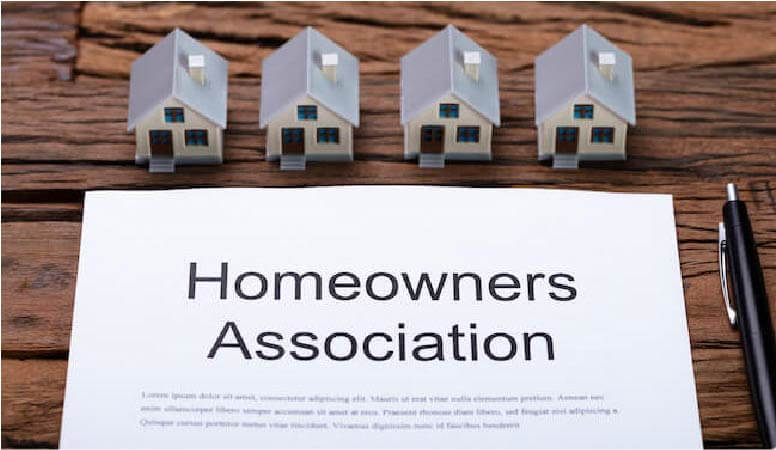HOA violations can be a significant source of stress for homeowners living in communities governed by homeowners associations. These infractions often lead to fines and other consequences that affect residents’ daily lives and property values. Understanding the common types of HOA violations, their potential repercussions, and how to address them is crucial for maintaining harmony within the community.
This article delves into the world of HOA violations, exploring the most frequent infractions such as landscaping issues and rule breaches. It also examines the enforcement process, the consequences of violations, and the steps homeowners can take to contest fines. Additionally, readers will gain insights into their legal rights as property owners and learn strategies to prevent future HOA violations, ensuring a smoother living experience within their community.
Common HOA Violations
Homeowners associations (HOAs) establish rules and regulations to maintain community standards and property values. However, residents sometimes inadvertently or intentionally violate these rules, leading to conflicts and potential consequences. Understanding the most common HOA violations can help homeowners avoid issues and maintain harmony within their communities.
Landscaping violations
Landscaping violations are among the most frequent HOA infractions. Many associations have specific guidelines regarding the appearance and maintenance of front yards and other visible areas. These rules may include restrictions on the types of plants allowed, the height of grass, and the use of certain landscaping materials. For example, some HOAs may prohibit colored mulch or require homeowners to use only drip irrigation along curbs and sidewalks. Violations often occur when residents fail to maintain their lawns, plant unapproved vegetation, or allow trees to extend beyond property boundaries.
Parking infractions
Vehicle and parking violations are another common source of conflict in HOA communities. Associations typically have rules governing the types of vehicles permitted, guest parking, and where residents can park their cars. Some HOAs may prohibit parking on the street, especially overnight, or restrict the number of vehicles allowed in driveways. Commercial vehicles, boats, and RVs are often subject to additional restrictions or outright bans. Parking infractions can lead to safety concerns and affect the overall esthetic of the neighborhood.
Unauthorized exterior modifications
HOAs often have strict rules regarding changes to the exterior of homes to maintain a uniform appearance throughout the community. These regulations may cover aspects such as house paint colors, types of fencing, and installation of satellite dishes or solar panels. Homeowners may violate these rules by making unauthorized modifications without obtaining proper approval from the HOA board. Even seemingly minor changes, such as adding a new mailbox or changing the color of shutters, can result in violations if not pre-approved.
Pet-related issues
With a significant portion of households owning pets, animal-related violations are common in HOA communities. Pet policies may include restrictions on the number of pets allowed per household, approved and non-approved breeds, weight limitations, and pet waste expectations. Common infractions include failing to clean up after pets, allowing dogs to bark excessively, or keeping prohibited breeds. Some HOAs may require pets to be on leashes in common areas or restrict where animals can be walked within the community.
By familiarizing themselves with these common HOA violations, homeowners can better understand their responsibilities and avoid potential conflicts with their association. It’s essential for residents to carefully review their HOA’s governing documents, including CC&Rs (covenants, conditions, and restrictions), to ensure compliance with all rules and regulations. When in doubt, homeowners should consult with their HOA board or management company before making any changes that could potentially violate community guidelines.
Consequences of HOA Violations
When homeowners violate HOA rules, they may face a range of consequences designed to enforce community standards and maintain property values. These consequences can vary in severity and impact, depending on the nature and frequency of the violation.
Warning notices
The first step in addressing HOA violations is typically issuing a warning notice. This serves as an initial communication to inform homeowners of their infraction and provides an opportunity to rectify the issue. Warning notices usually include details of the violation, required actions to correct it, and a deadline for compliance. This approach allows homeowners to address the problem without immediately incurring financial penalties.
Monetary fines
If violations persist or are not addressed after a warning, HOAs often resort to imposing monetary fines. These fines are a standard means of enforcement and can be effective in encouraging compliance. The amount of fines can vary depending on the severity of the offense and the association’s policies. Generally, fines start around USD 25.00 but can escalate to USD 200.00 or more for repeated or serious violations. Some states, like Florida, cap HOA fines at USD 100.00 per violation, with a maximum aggregate of USD 1,000.00 unless otherwise specified in the governing documents.
Loss of privileges
Another consequence of HOA violations is the potential loss of privileges within the community. This can include suspension of access to common areas and amenities such as swimming pools, fitness centers, or clubhouses. The loss of these privileges can significantly impact a homeowner’s quality of life and enjoyment of the community, serving as a strong deterrent against rule violations.
Legal action
In severe cases of non-compliance or repeated violations, HOAs may resort to legal action. This can involve filing a lawsuit, obtaining a court injunction, or placing a lien on the property. Legal action is typically a last resort when other enforcement methods have failed to resolve the issue. It’s important to note that legal proceedings can be costly and time-consuming for both the HOA and the homeowner.
Homeowners should be aware that ignoring HOA violations or failing to pay fines can lead to escalating consequences. Unpaid fines may accrue interest or late fees, potentially resulting in a significant financial burden. In extreme cases, the HOA may have the authority to foreclose on a property to recoup unpaid dues or fines, though this is generally considered a drastic measure.
To avoid these consequences, homeowners should familiarize themselves with their HOA’s rules and regulations, promptly address any violations, and maintain open communication with the association. If a homeowner believes a violation notice or fine is unjustified, they may have the right to appeal the decision through the HOA’s established procedures.
HOA Violation Enforcement Process
The enforcement process for HOA violations is designed to maintain community standards while ensuring fairness for all residents. This process typically involves several steps, each aimed at resolving issues and encouraging compliance with HOA rules and regulations.
Initial notification
When an HOA violation is identified, the first step is to notify the homeowner. This initial notification serves as a warning and provides an opportunity for the resident to address the issue without immediate penalties. The notice should clearly state the nature of the violation, referencing the specific rule or regulation that has been breached. It’s crucial for HOAs to deliver this notification in writing, either through first-class mail or personal delivery, to ensure proper documentation of the process.
Hearing procedures
If the violation persists or the homeowner contests the initial notification, the next step is to conduct a hearing. This hearing allows the homeowner to present their case and provides the HOA board with an opportunity to gather more information about the situation. The HOA must give proper notice of the hearing, typically at least 10 days in advance, specifying the date, time, and place of the meeting. The notice should also outline the alleged violation and inform the homeowner of their right to attend and present evidence in their defense.
Appeals process
Following the hearing, if the HOA board decides to impose fines or other penalties, the homeowner may have the right to appeal the decision. The appeals process varies depending on the association’s governing documents and state laws. In some cases, if the original hearing was conducted by a rules committee, the homeowner might be able to appeal to the full board of directors. However, if the board itself conducted the initial hearing, there may not be an additional avenue for appeal within the HOA structure.
Escalation of penalties
If violations continue or remain unresolved, HOAs may escalate the enforcement process. This can involve increasing fines, suspending privileges such as access to community amenities, or in severe cases, placing a lien on the property. Some associations use an escalating fine system, where penalties increase for repeated offenses. For example, a first offense might result in a USD 25.00 to USD 50.00 fine, while subsequent violations could lead to fines of USD 100.00 or more.
Throughout the enforcement process, it’s crucial for HOAs to maintain consistency and fairness. Uniform enforcement of rules across all residents helps prevent accusations of discrimination or favoritism. Additionally, HOA boards must ensure they follow due process as outlined in their governing documents and state laws to avoid legal challenges to their enforcement actions.
How to Contest an HOA Violation
When faced with an HOA violation, homeowners have the right to challenge the decision if they believe it to be unjust or improperly imposed. To effectively contest an HOA violation, residents should follow a systematic approach that includes reviewing governing documents, gathering evidence, requesting a hearing, and presenting their case.
Review governing documents
The first step in contesting an HOA violation is to thoroughly examine the association’s governing documents. These include the bylaws, covenants, conditions, and restrictions (CC&Rs), and any applicable state laws such as the Davis-Stirling Act. Homeowners should pay close attention to the specific rules and regulations that govern the HOA, as well as the procedures for filing complaints and appealing decisions. Understanding these documents is crucial for determining whether the alleged violation is valid and if the HOA has followed proper procedures in issuing the violation notice.
Gather evidence
Once familiar with the governing documents, homeowners should collect evidence to support their position. This may include:
- Written correspondence with the HOA board or management company
- Photographs or videos that demonstrate compliance with rules
- Witness statements from neighbors or other relevant parties
- Documentation of any prior approvals or permissions granted by the HOA
Evidence should be organized and presented in a clear, concise manner to strengthen the homeowner’s case against the alleged violation.
Request a hearing
Most HOAs have a formal complaint procedure that homeowners must follow before taking legal action. This typically involves submitting a written request for a hearing with the HOA board or a designated hearing officer. When requesting a hearing, homeowners should:
- Follow the timelines set forth in the violation notice
- Clearly state the reason for disputing the violation
- Mention any corrective actions taken or extenuating circumstances
- Highlight any inconsistencies in rule enforcement throughout the community
It’s important to note that some HOAs may require the initial request for a hearing to be made in writing, while others may be more flexible in accepting verbal requests.
Present your case
During the hearing, homeowners have the opportunity to present their case and argue against the alleged violation. To effectively present their case, homeowners should:
- Prepare a clear and concise explanation of why they believe the violation is unjustified
- Present the gathered evidence in a logical order
- Address any questions or concerns raised by the board or hearing officer
- Maintain a respectful and professional demeanor throughout the proceedings
Homeowners should also be prepared to offer potential solutions or compromises to resolve the issue. Expressing a willingness to find middle ground can often lead to a more favorable outcome.
It’s important to remember that the appeal process serves two purposes: to convince the board to reconsider their decision and to gather facts for possible legal action if necessary. In some states, such as Arizona, homeowners have the right to record the hearing, which can be beneficial if further legal action is anticipated.
By following these steps and maintaining a thorough understanding of their rights and responsibilities, homeowners can effectively contest HOA violations and work towards a fair resolution. If the issue remains unresolved after exhausting all internal options, consulting with an experienced HOA attorney may be necessary to explore further legal avenues.
Legal Rights of Homeowners
Homeowners living in communities governed by homeowners associations (HOAs) have specific legal rights that protect them from unfair treatment and discrimination. These rights are established through federal and state laws, ensuring that residents can enjoy their homes without facing unjust restrictions or penalties.
Fair Housing Act protections
The Fair Housing Act (FHA) is a cornerstone of homeowner protection, prohibiting discrimination in housing-related activities. This federal law applies to HOAs and protects individuals from discrimination based on race, color, national origin, religion, sex, familial status, and disability. HOAs must comply with the FHA when enforcing rules, making decisions about property use, or handling requests for accommodations.
Under the FHA, homeowners with disabilities have the right to request reasonable accommodations or modifications. For example, an HOA may need to allow a wheelchair ramp installation or adjust parking rules to accommodate a resident’s mobility needs. These requests must be granted unless they impose an undue financial burden on the association or fundamentally alter its operations.
State-specific HOA laws
In addition to federal protections, many states have enacted their own laws governing HOAs and expanding on fair housing protections. For instance, California has implemented the Davis-Stirling Common Interest Development Act, which provides a comprehensive framework for HOA operations and homeowner rights. This act covers various aspects of community living, including board elections, meetings, and dispute resolution processes.
State laws often address specific issues that may not be covered by federal regulations. For example, some states have laws that limit an HOA’s ability to restrict pet ownership, prohibit the rental of homes within the community, or prevent homeowners from engaging in personal gardening activities.
Limitations on HOA authority
While HOAs have the power to enforce rules and regulations, their authority is not unlimited. Homeowners have the right to challenge HOA decisions that they believe are unfair or exceed the association’s authority. Some key limitations on HOA power include:
- Restrictions on fines and penalties: Many states set limits on the amount and frequency of fines that HOAs can impose for rule violations.
- Due process requirements: HOAs must follow proper procedures when enforcing rules, including providing notice of violations and opportunities for hearings.
- Transparency in operations: Homeowners generally have the right to access association records and financial documents.
- Limitations on rule changes: HOAs may be required to follow specific procedures and obtain homeowner approval before implementing significant rule changes.
- Protection against arbitrary enforcement: Rules must be applied consistently and without discrimination among homeowners.
Understanding these legal rights empowers homeowners to advocate for themselves and ensure fair treatment within their communities. If homeowners believe their rights have been violated, they may have recourse through internal dispute resolution processes, state agencies, or the legal system. It’s essential for both HOA boards and homeowners to be familiar with these rights to maintain harmonious community living and avoid potential legal conflicts.
Preventing Future HOA Violations
To maintain a harmonious living environment and avoid potential conflicts, homeowners can take proactive steps to prevent future HOA violations. By staying informed, communicating effectively, and actively participating in the community, residents can minimize the risk of infractions and contribute to a positive neighborhood atmosphere.
Stay informed of rules
One of the most crucial aspects of preventing HOA violations is to stay well-informed about the community’s rules and regulations. Homeowners should thoroughly review the association’s governing documents, including bylaws, covenants, conditions, and restrictions (CC&Rs). These documents outline the specific guidelines that residents must follow to maintain compliance with HOA standards.
To ensure ongoing awareness, homeowners can:
- Regularly attend HOA meetings to stay updated on any rule changes or new policies.
- Read all communications from the HOA board, including newsletters, emails, and notices.
- Familiarize themselves with the most common violations in their community to avoid inadvertent infractions.
By staying informed, residents can better understand the rationale behind certain rules and be more inclined to comply with them.
Communicate with the board
Open and effective communication with the HOA board is essential for preventing violations and resolving potential issues before they escalate. Homeowners should not hesitate to reach out to board members or the property management company if they have questions or concerns about specific rules or regulations.
When communicating with the board:
- Be respectful and professional in all interactions.
- Ask for clarification on any rules that seem ambiguous or confusing.
- Provide constructive feedback or suggestions for improving community guidelines.
By maintaining open lines of communication, homeowners can build positive relationships with board members and contribute to a more collaborative community environment.
Seek pre-approval for changes
Many HOA violations occur when homeowners make unauthorized changes to their property’s exterior or structure. To avoid such infractions, it is crucial to seek pre-approval from the HOA board before initiating any modifications or renovations.
When planning changes to your property:
- Submit a detailed project proposal to the board, including plans, materials, and timelines.
- Allow sufficient time for the board to review and respond to your request.
- Be prepared to make adjustments to your plans if necessary to comply with HOA guidelines.
By obtaining pre-approval, homeowners can ensure that their projects align with community standards and avoid potential fines or the need to undo completed work.
Join the HOA board
One of the most effective ways to prevent HOA violations and contribute to the community is by joining the HOA board. Serving on the board provides homeowners with valuable insights into the decision-making process and allows them to actively shape community policies.
Benefits of joining the HOA board include:
- Gaining a deeper understanding of the association’s rules and enforcement procedures.
- Having a voice in policy-making and community improvement initiatives.
- Developing relationships with fellow board members and residents.
By participating in board activities, homeowners can help create a more transparent and collaborative environment, ultimately reducing the likelihood of violations and fostering a sense of community pride.
Conclusion
Navigating HOA violations requires a clear understanding of community rules and homeowner rights. By staying informed, communicating effectively with the board, and seeking pre-approval for changes, residents can minimize the risk of infractions. Furthermore, active participation in the community, such as joining the HOA board, can foster a collaborative environment and reduce conflicts.
Ultimately, HOA violations have a significant impact on community harmony and property values. However, with proper knowledge and proactive measures, homeowners can maintain compliance while protecting their rights. This balanced approach ensures a positive living experience for all residents within the HOA community.
Related Articles:
- HOA Dispute Resolution Like a Pro: Essential Tips for Board Members
“Practical tips for board members to handle HOA disputes professionally and effectively.” - HOA Code of Conduct: Legal Implications for Board Members
“Understand the legal implications of the HOA code of conduct.” - Fiduciary Duty for HOA Board Members
“Learn about the fiduciary duties of HOA board members.”








